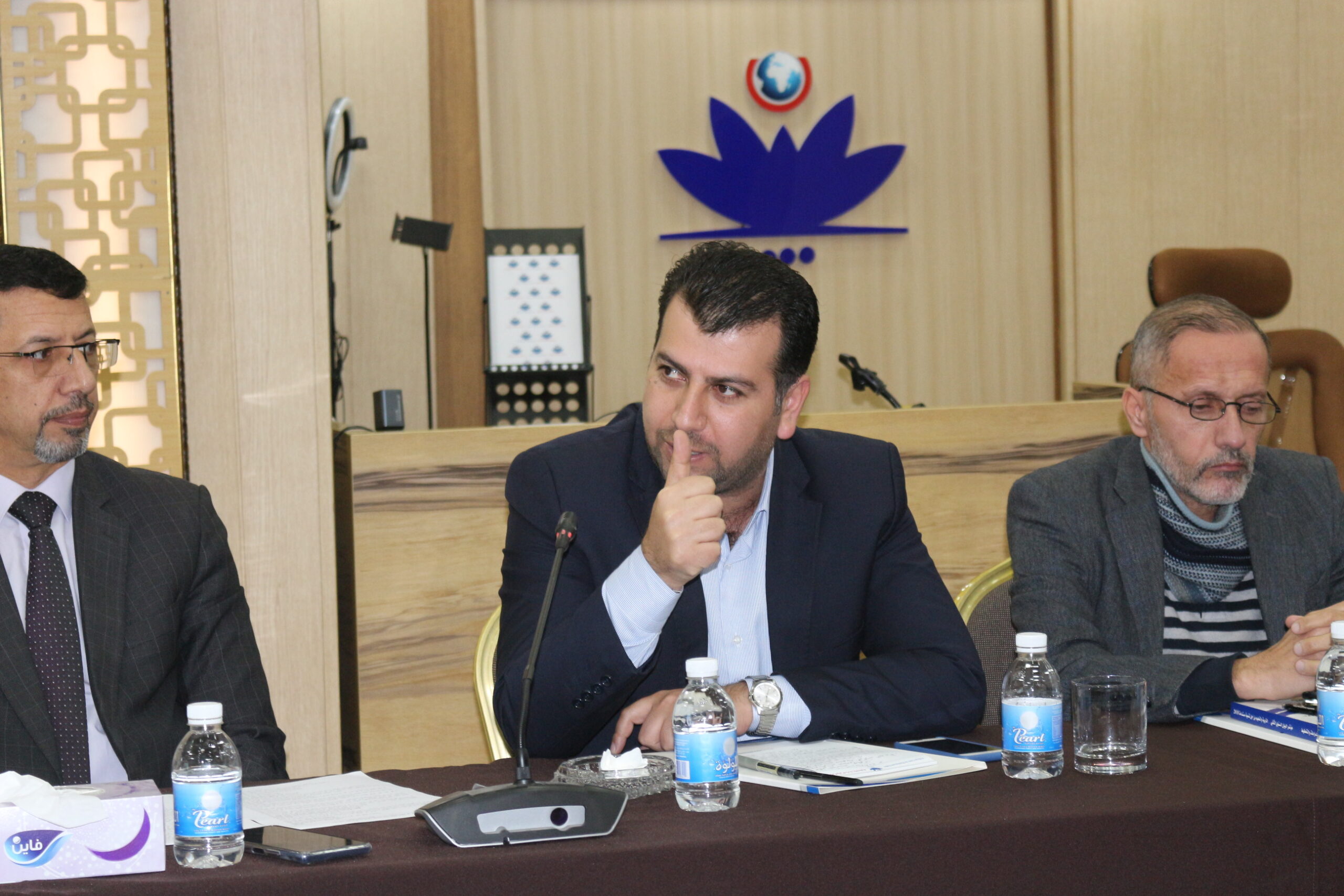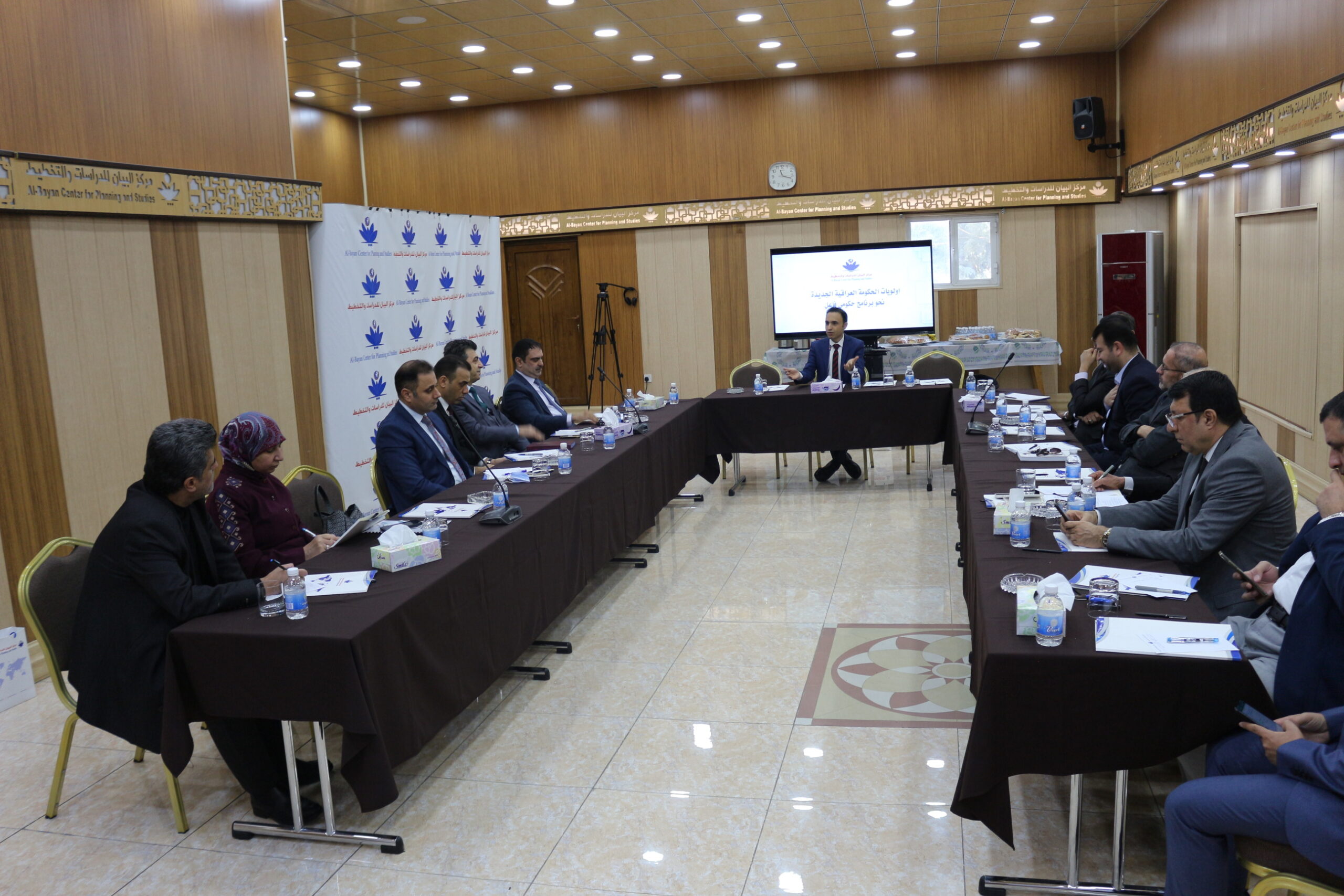On January 15, 2022, Al-Bayan Center for Planning and Studies held a closed workshop for a group of experts and academics to discuss what the next government program should include, the workshop entitled: “The priorities of the new Iraqi government: Towards an effective government program”
In the context of the center’s work, which aims to provide decision-makers with policy proposals that direct them towards making decisions that will improve the performance of public policies.
The workshop was opened by Dr. Ali Taher Alhammood, Managing Director of Al-Bayan Center, “Our work at Al-Bayan Center adopts a pragmatic approach that focuses on dealing with the gaps that impede the performance of successive Iraqi governments and addresses them in a focused and specific manner to solve them by offering a policy roadmap that would help decision-makers adopt policies that are more effective”. Alhammood referred to the most important issues facing the new Iraqi government, such as the file of constitutional amendments, combating terrorism, foreign policy, confronting armed groups, administrative and economic reform, legislations that hamper the economy, and social problems such as drugs, education, and others, all of which are among the list of things that the government should pay attention to, for the near future.
Dr. Adel Al-Badawi, Dean of the College of Political Science at the University of Baghdad, “the most prominent problem facing previous government programs is that they are redundant and basic, and often require government courses that exceed the time allocated for the government program.” He recommended “that the next government program be limited to two or three points, for problems that need an urgent solution,” He also stated, “priorities that the government should focus on are unemployment, providing job opportunities for young people, and relieving pressure on government employment.”
Dr. Muthanna al-Mahdawi, a foreign policy specialist, said that “foreign policy must be effective and balanced in various fields, and the country’s foreign policy does not exercise its functions in relation to different fields; Water in foreign policy is important so that the share of Iraqi water from the upstream countries is not lost, and he added that “the US-Iranian rapprochement is an opportunity for the country in its foreign policy to employ this in attracting investment and developing the economy.”
Dr. Manal Abdel Hadi, Director General of the Integrity Commission, “the focus on combating corruption has not yet risen to establish a legislative framework that is in line with Iraq’s international obligations as a member of the United Nations Convention against Corruption,” adding that “existing legislations need to be amended or issuing of new legislations that implement sanctions and accountability against corrupt practices.” She also considered that anti-corruption institutions are more discordant than they are cooperative in their work.
A set of recommendations resulted from the workshop, including:
– Determining the necessary equation for the Iraqi situation, which needs two things: either constitutional amendments or policy amendments, and the experts in the workshop considered that it is better to apply both together because amending policies and constitutional amendment leads to a set of positive amendments that give a qualitative leap in public policies in Iraq.
– Diversifying sources of economic development and facing the current obstacles to avoid the effects of the COVID-19 pandemic and low oil prices.
– Combating corruption through specific and effective practical mechanisms that were put forward by the experts in the workshop.
Link: https://www.bayancenter.org/2022/01/8009/






